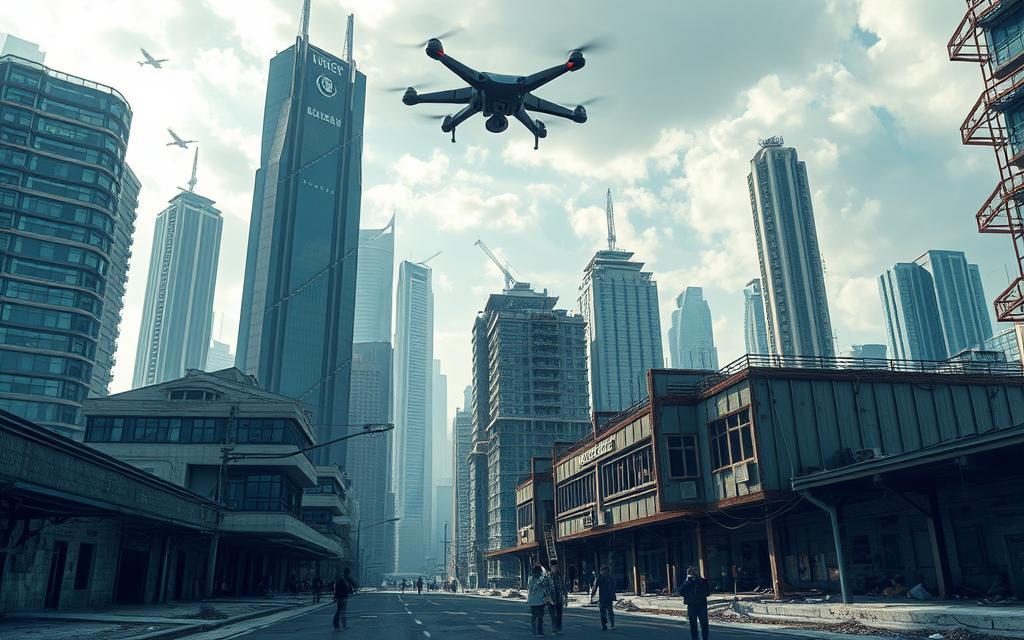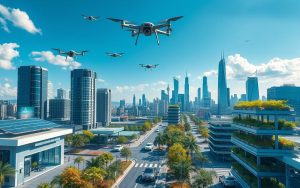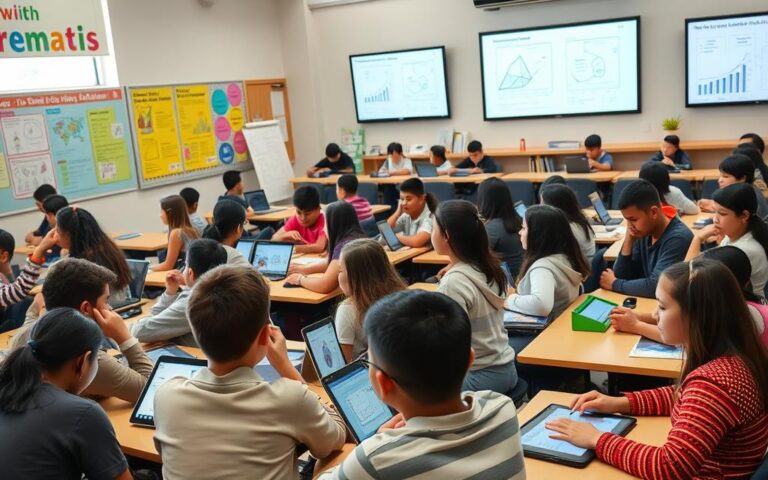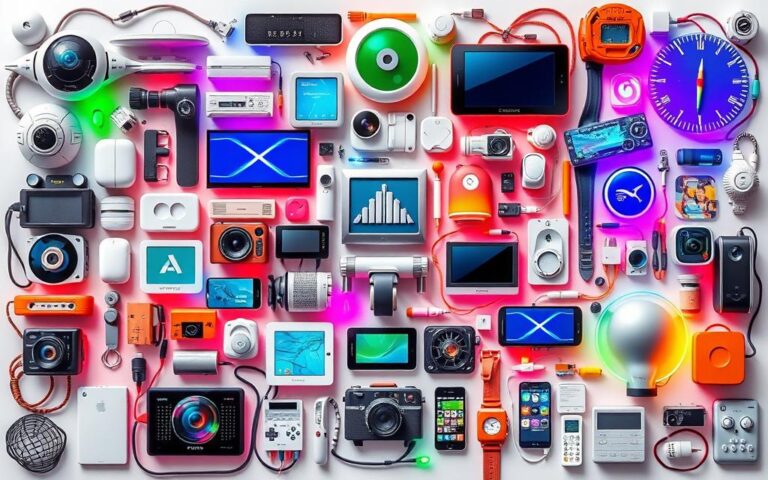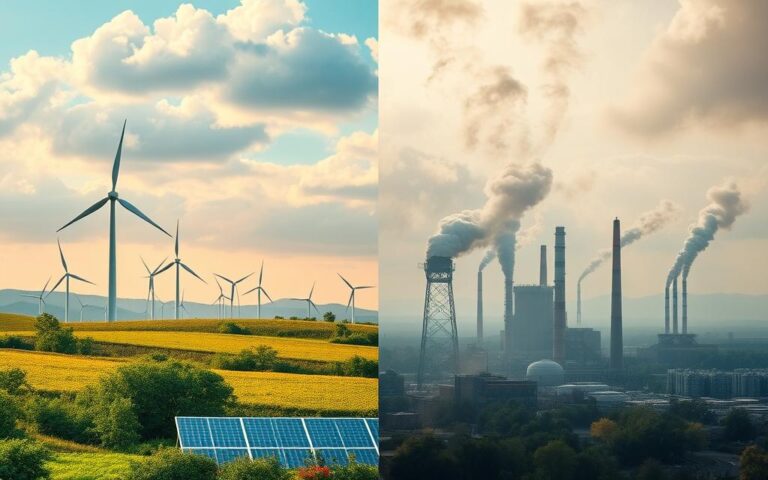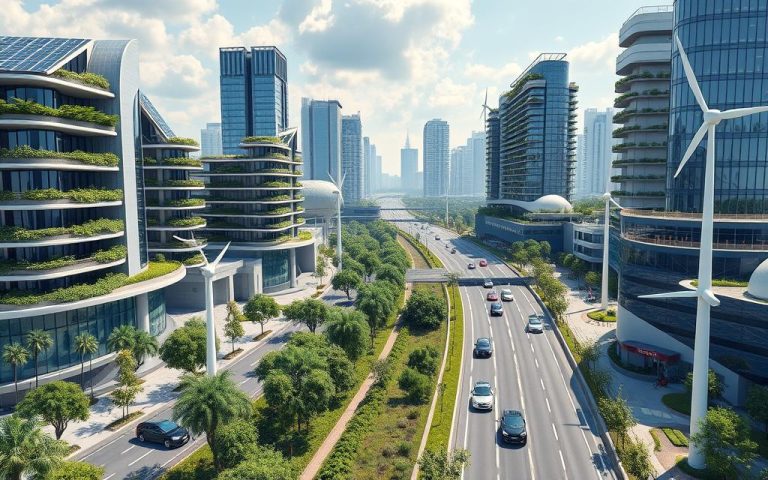Is Rapid Technology Advancement Harmful to Humanity?
Technology grows faster than ever before, pushing society to face its impact on humanity. Innovations touch each part of our lives, from how we talk to how we heal. There’s a need to balance the good and bad sides of technology. Smartphones are always close by, while new fields like Augmented Reality and blockchain are not yet fully accepted. This situation calls for deep conversation.
Tools like CRISPR gene editing and Artificial Intelligence bring pros and cons. We’re often overwhelmed by new tech, needing time to adapt to it. In the past, things changed more slowly which made it easier for people to get used to new ideas. Today, we wonder if these fast changes hurt our well-being or help the world move forward.
The risks of technology matter. We should think about how it changes our minds, economy, and society. Standing at the edge of new discoveries, we have to ask if our fast chase for progress is good or bad.
The Historical Context of Technological Advancement
Exploring the history of tech shows how innovation affects society. It reveals a mix of benefits and challenges that shape our world. Each key technological advancement leads to new possibilities and issues.
The Industrial Revolution and Its Impact
The Industrial Revolution changed the world’s economies. It moved us from farming to factories, sparking debates about jobs. Machines made work faster but also led to layoffs.
This upheaval created new industries even as it destroyed old ones. It shifted workers from fields to factories. These changes are still felt in today’s society.
Lessons from the Luddites
The Luddites resisted new machines during the Industrial Revolution. They were afraid of losing jobs and of society changing. Their opposition reminds us to think carefully about technology’s impact.
They challenge the idea that progress is always good. Today, we still debate about how technology affects us, inspired by the Luddites’ concerns.
The Unabomber’s Critique of Technology
Theodore Kaczynski, also known as the Unabomber, criticised technology’s impact. He believed it limited human freedom and potential. His manifesto calls for a reconsideration of our path with technology.
His views spark debate on innovation versus human autonomy. Kaczynski’s thoughts make us question the real value of tech progress.
The Psychological Effects of Rapid Technological Change
Technology is changing fast, affecting our minds and how we connect with others. It alters how we focus, build relationships, and remember things. By understanding these changes, we can see their big effect on society.
Impact on Attention Span and Decision-Making
Nowadays, getting information instantly has made our attention span very short. Experts say we might focus for only eight seconds. This is even less than a goldfish’s attention span! Because of this, making decisions becomes harder. Relying too much on digital info makes it tough to make quick, smart choices.
How Social Media Influences Relationships
Social media has changed how we interact with each other. In 2020, nearly 3 billion people were using social media platforms. This new way of connecting can sometimes make our interactions less meaningful. It has even been linked to mental health problems, like feeling lonely or anxious.
The Change in Memory Retention
Trusting too much in digital sources can weaken our memory. It’s becoming easy to find facts, so we don’t bother to remember them. Research shows that while we can look up more information than before, we’re not as good at remembering it. This shows how important it is to think critically in our tech-driven world.
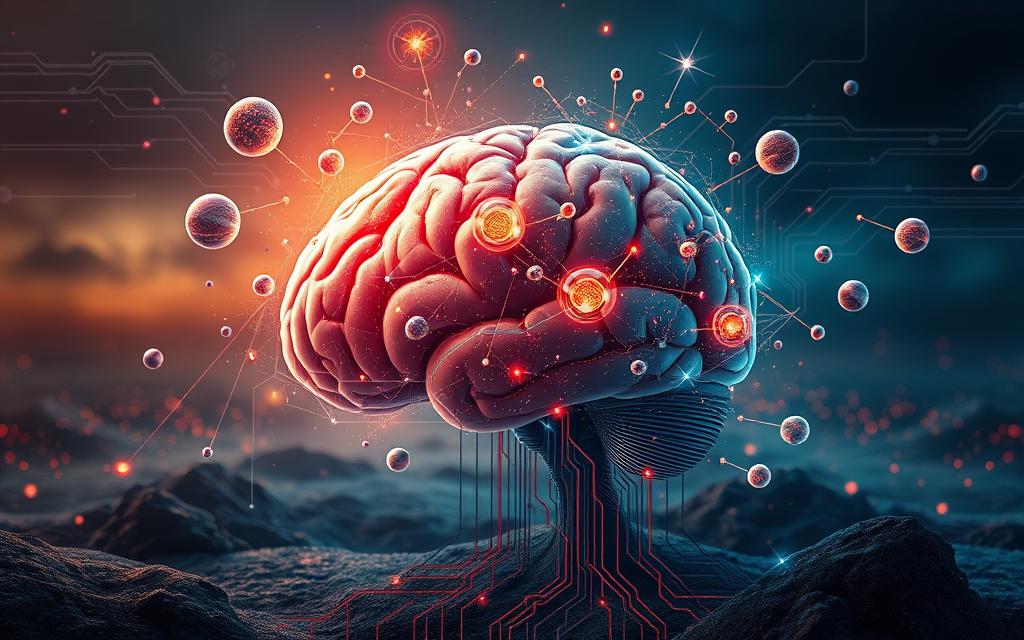
| Aspect | Impact | Research Findings |
|---|---|---|
| Attention Span | Decreased | Averages about 8 seconds |
| Decision-Making | Compromised | Increased reliance on digital information |
| Relationships | Superficial connections | Link to increased mental health issues |
| Memory Retention | Diminished recall | Diminished ability to remember key facts |
Is Technology Advancing Too Fast for the Good of Mankind?
Technological advancements are happening faster than ever before, making us question their effect on society. These changes have big impacts on the economy, especially when it comes to jobs. Over half the people surveyed are worried about how fast tech is changing, fearing for their jobs.
Automation and artificial intelligence are posing real risks to clerical and manual jobs. This could increase the gap between rich and poor. History shows us that big tech changes usually mean job losses, sparking debates on how to handle these shifts.
Economic Implications and Employment Trends
By 2025, it’s predicted that technology will create more than 97 million new jobs worldwide. This shows that tech advancements can both get rid of and create jobs. Companies like Qualcomm are working on ways to improve skills for a high-tech world.
For example, AT&T is checking what skills their workers need and offering online courses to help. These efforts aim to fill the gap between current skills and those needed for tomorrow’s jobs.
Technological Dependence and Social Isolation
Though technology makes work easier, it also raises concerns about our reliance on it. More and more, we’re using digital tools, which might reduce our face-to-face time with others. This could lead to fewer deep offline relationships and make mental health issues worse.
A divide is growing between those eager to learn and those who are not. Education is changing into something we do throughout our lives. But as we focus more on tech, we may lose touch with the value of community and real connections.
The Role of Technology in Warfare
Technology has changed how wars are fought today. It brings both good and bad impacts to the battlefield. The effects of warfare technology spark debates on ethics. It’s important to examine military innovations and autonomous weapons closely.
Military Applications: A Double-Edged Sword
Technological advances have always been vital for military victories. Technologies like precision weapons help avoid harming civilians and yet, might increase war intensity. The atomic bomb shows the dangers of fast-paced tech advancements in the military. The invention of the automatic gun in 1884 by Hiram Maxim revolutionized combat by enabling rapid firing.
The Threat of Autonomous Weapons
The emergence of drones and automated weapons brings up serious ethical issues. These types of weapons decide on life and death without human input, which makes us question who is responsible in war. Adding autonomous systems to military forces increases the chance of accidental conflict escalation. Mixing different technologies could change war fundamentally, making its future uncertain.
| Technology | Impact on Warfare | Ethical Implications |
|---|---|---|
| Precision Weaponry | Minimises collateral damage, increases effectiveness | Risks of escalation, moral concerns |
| Intelligence-Gathering Technologies | Enhances situational awareness, improves decision-making | Privacy issues, potential for misuse |
| Autonomous Weapons | Reduces need for human presence in combat zones | Accountability, decision-making morality |
Witnessing these tech advancements, it is critical to continue discussing their ethical impacts. Finding a balance between their benefits and dangers will shape how warfare evolves.
Conclusion
Technology moves fast and changes our lives deeply. It affects how we talk, what we do daily, and even how we think. While it brings good things like better healthcare and easier ways to connect, there are risks too. We face mental health problems from too much screen time and shorter attention spans because of technology.
Experts both worry and feel hopeful about where technology might take us. Margaret O’Mara points out that even with new gadgets, how people interact doesn’t change much. Yet, we’re dealing with more information than ever before. This means we must look closely at how we use technology. We need to make sure it helps us, not hurts us.
We should use technology in a way that’s careful and thoughtful. It’s important to keep asking tough questions and talk about how to use tech wisely. With the right focus, we can use innovations to improve our lives. Check out this link for more thoughts on how tech and people interact: https://www.linkedin.com/pulse/how-technology-changing-humanity-brett-gallant-yyzpe.
FAQ
What are some historical implications of technological advancement?
The Industrial Revolution drastically changed our world. It altered the way economies work and sparked debates about jobs. Groups like the Luddites were against these changes. They worried about jobs and how society would cope.
How does rapid technology affect our psychological wellbeing?
Quick changes in technology cut our attention span to just eight seconds. This affects how we make decisions. Using social media a lot also changes how deep our friendships are and can alter our memory.
Are there economic risks associated with advancing technology?
Certainly, advancing tech does create new jobs but also poses a risk to current ones. Automation, in particular, sparks fears about unemployment and greater economic inequality. This mirrors past instances where new tech has cost jobs.
What are the ethical concerns surrounding military technology?
New military tech aims to lower civilian harm but might boost conflict levels. Tools like autonomous weapons bring up big ethical questions. Issues like who is blamed and accidental harm in battles are major worries.
What lessons can we learn from the critiques of technology?
Critics like Unabomber Theodore Kaczynski push us to think about what tech costs us in freedom and potential. They urge us to deeply think about how much we rely on tech every day.
How does technology impact social connections?
With billions on social media, the way we keep up with friends has shifted. This can hurt our social skills and make us feel lonelier, which might affect our mental health.
Why is critical thinking important in the context of technology?
Our dependence on tech to find facts lessens our memory strength, making it vital to think critically. As we turn more to digital sources, analysing information is key for wise choices.
What future challenges does rapid technology present?
Tech’s quick growth brings many community challenges. It’s important to talk about what’s good and bad about tech. We need thoughtful rules for using tech to make sure it improves our lives.
